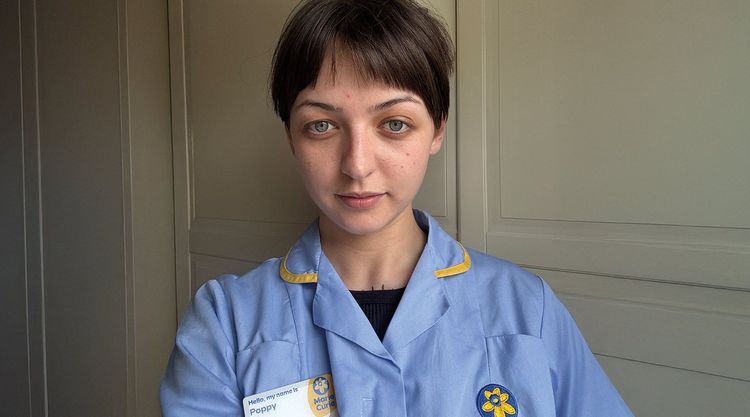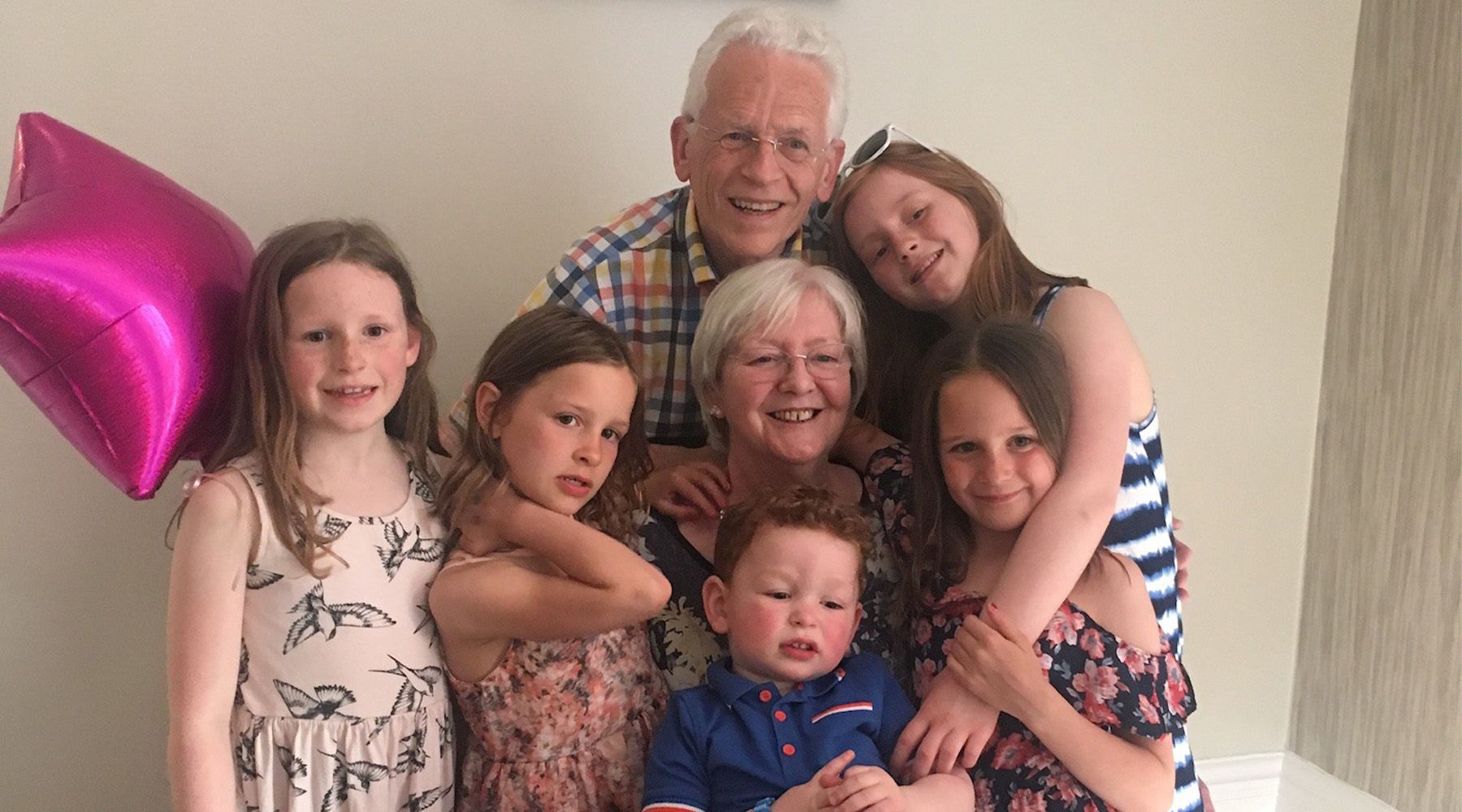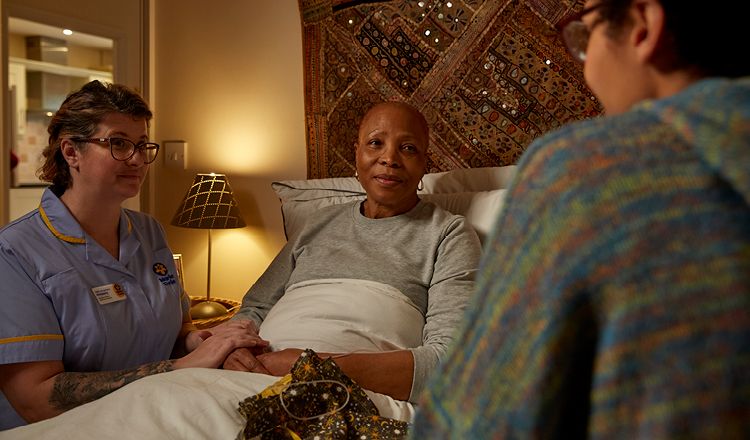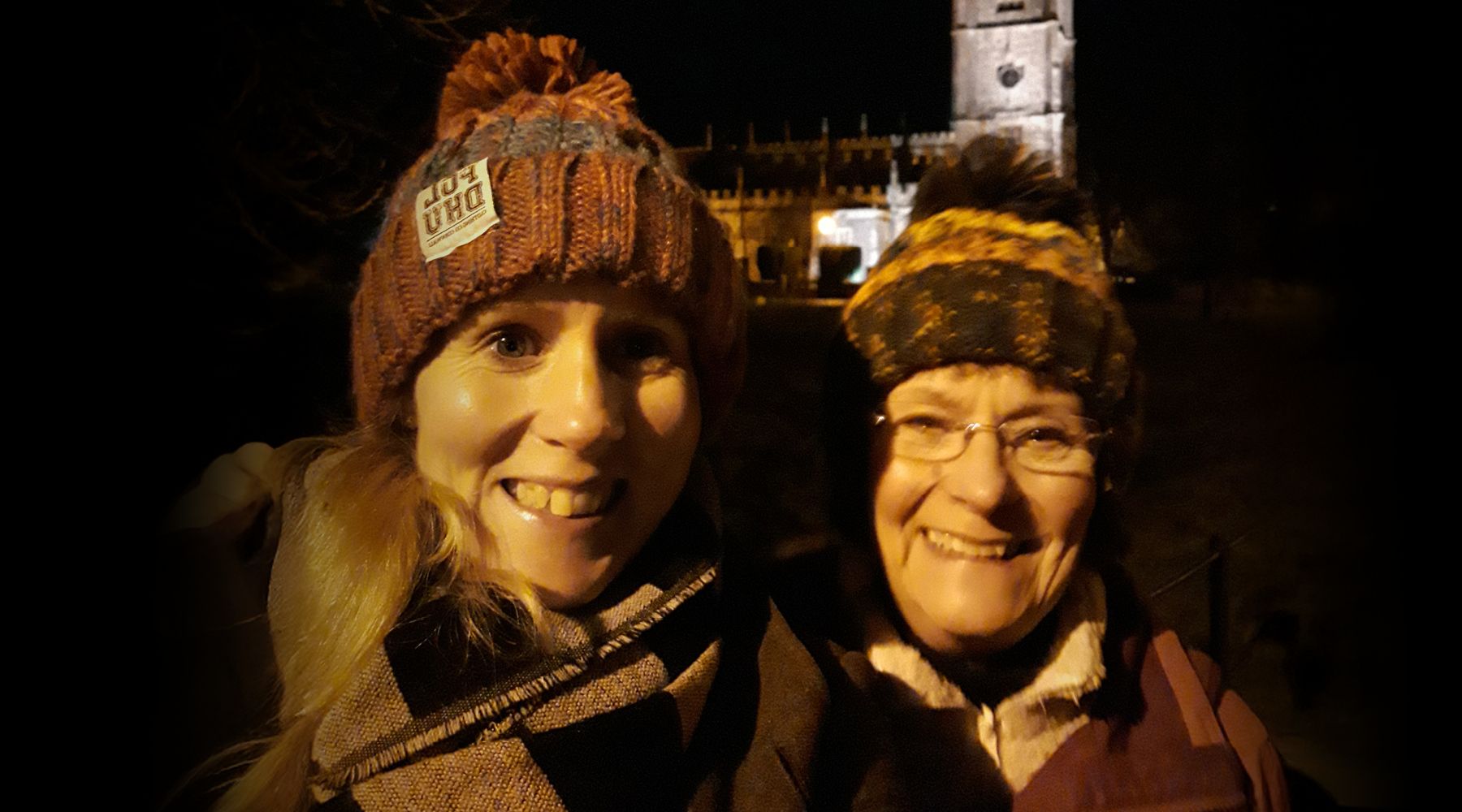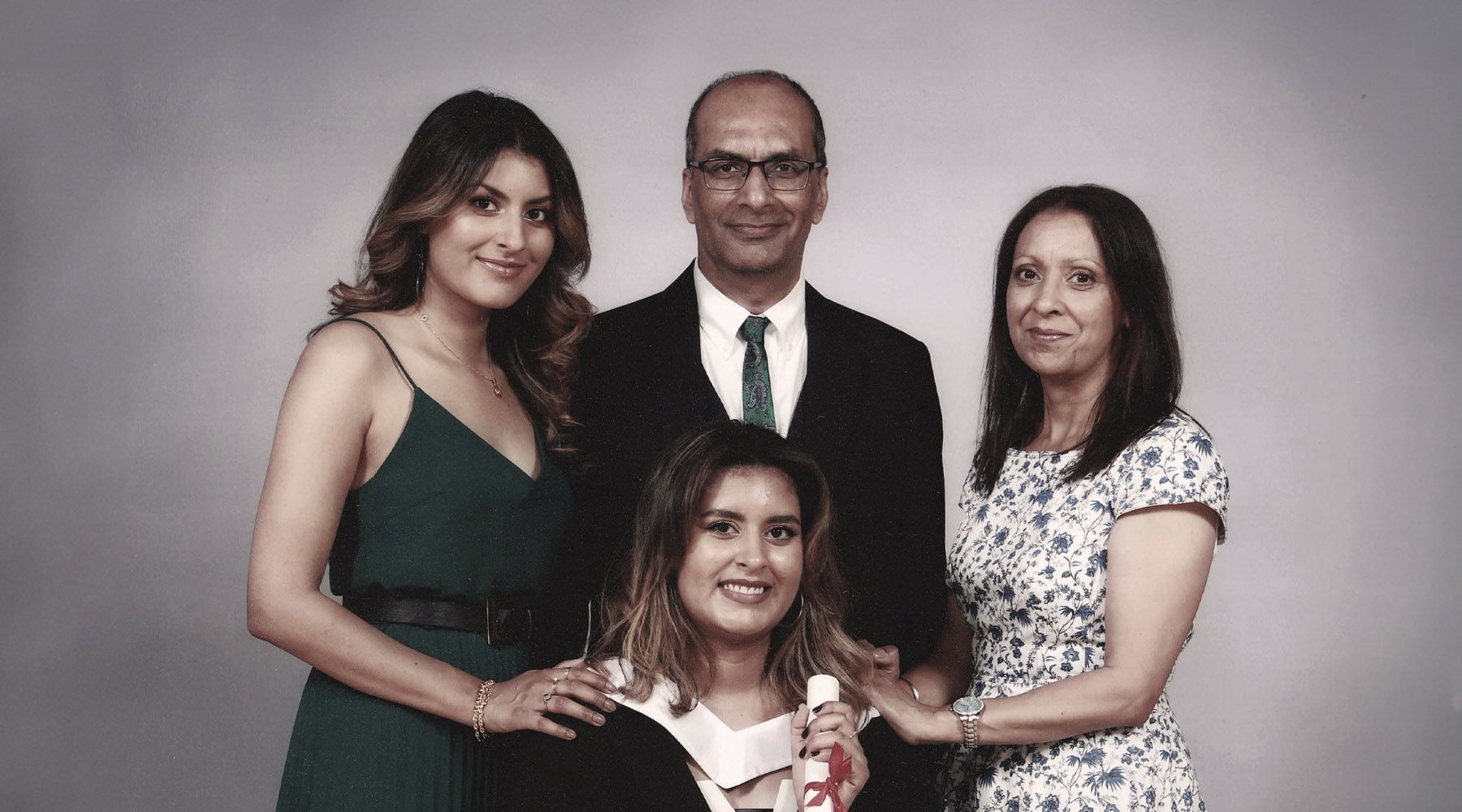Poppy Taylor is a Marie Curie Healthcare Assistant in the Dementia Care and Respite service in Wales. She explains the difference expert care makes for people living with late-stage dementia and those close to them.
Marie Curie support is a lifeline for so many people living with dementia or caring for someone who is. People don’t always know that support is out there. But realising they can get care from us can change everything for family and carers. It can take an enormous weight off, practically and emotionally.
We provide respite and support for carers
Caring for someone with Alzheimer’s or other forms of dementia full- time can be a huge task, so we provide carers with some rest and support. We spend time with their loved one, so that they have an opportunity to go out, do their shopping, have a nap.
They often need someone to talk to as well. It’s very easy to feel trapped or isolated in their circumstances, and not everyone understands dementia, or what caring for someone is like. Some people may experience anticipatory grief. We give people an opportunity to chat, talk about their feelings and get things off their chest. You can see the relief afterwards.
It’s always nice to be there for someone and to be able to ease their anxiety, even if it’s only in a small way. It can make a huge difference to them and to their loved one.
Treating people with dementia as individuals
Dementia is a complex condition. The presentations and characteristics vary hugely, so when I see people it’s always different. Despite the dementia, they’re all individuals with their own needs. They still want to be included. Sometimes it can be nice for them to see a different face, have someone give them their time and attention in the way they need. That can help protect their dignity and humanity, because they can lose so many parts of themselves through dementia.
When I’m going to see someone for the first time, I’m looking around the house for clues. What are their interests and how can I adjust to them?
Communicating with someone who has dementia
One of the main challenges with dementia is around communication and understanding. They may be limited or impaired, so you need to be very straightforward. I step into their world to figure out where they are and how they need me to look after them.
Some patients are chatty and very well cognitively, so you can sit and talk with them. They want to tell you stories about their life or their loved ones and that’s always lovely to hear.
Others are non-verbal. They may like listening to music, or I might engage them with a puzzle. I support them so they can stay focused on an activity. When patients are bedbound, I give practical support too – getting food and a drink, even changing the TV channel.
If patients are distressed, I offer lots of reassurance. Someone with dementia may be unsure of where they are or what’s happening. We’ll focus on the moment we’re in – having a cup of tea, watching something, anything they find pleasant, to take their mind off whatever is bothering them.
Coping when dementia causes challenging behaviour
People can have good days and bad days. It can be quite variable. Sometimes dementia can cause challenging behaviours, including aggression. It’s a case of mediating the situation, being a gentle presence. Something that might seem minor to us – having a stranger in the house, a change in routine – can be incredibly distressing for someone living with dementia. It’s important to be mindful of that. You’re there to support them. I always remember that hostility is never a reflection of the person.
The rewards of caring for people at the end of life
This is not straightforward work. You must be adaptable. But there are so many rewards. When someone’s having a bad day, I might be able to turn their mood around a little, get a smile from them. I might build a positive rapport with a patient who’s reluctant in accepting care. Sometimes I figure something out about someone that really engages them, lets them share a different part of themselves. Those are such good feelings.
People know they aren’t alone
End of life care is under-recognised, but this specialism is so important. Leaving this world is a milestone. You want the person to be as comfortable and at ease as possible – for them and for their family who are losing someone important to them.
You see a different side of life working in palliative care. It gives you a new perspective on the world. To be there for someone at the end of their life is an enormous privilege.
Everyone is very grateful for the care we provide, but I get back just as much as I give. I’m so proud to work for Marie Curie. People see our uniform and know they’re going to be taken care of, that they aren’t going to be alone.
If you or someone close to you is living with dementia, you can get free practical and emotional support from our Support Line and Marie Curie Companion service. We provide expert care at home and in our hospices, whatever the illness, and through the Dementia Care and Respite service in some areas in Wales.
You can help provide more expert end of life care to people living with any terminal illness, including dementia. Donate today.
All rights reserved. Contact stories@mariecurie.org.uk for more information.
